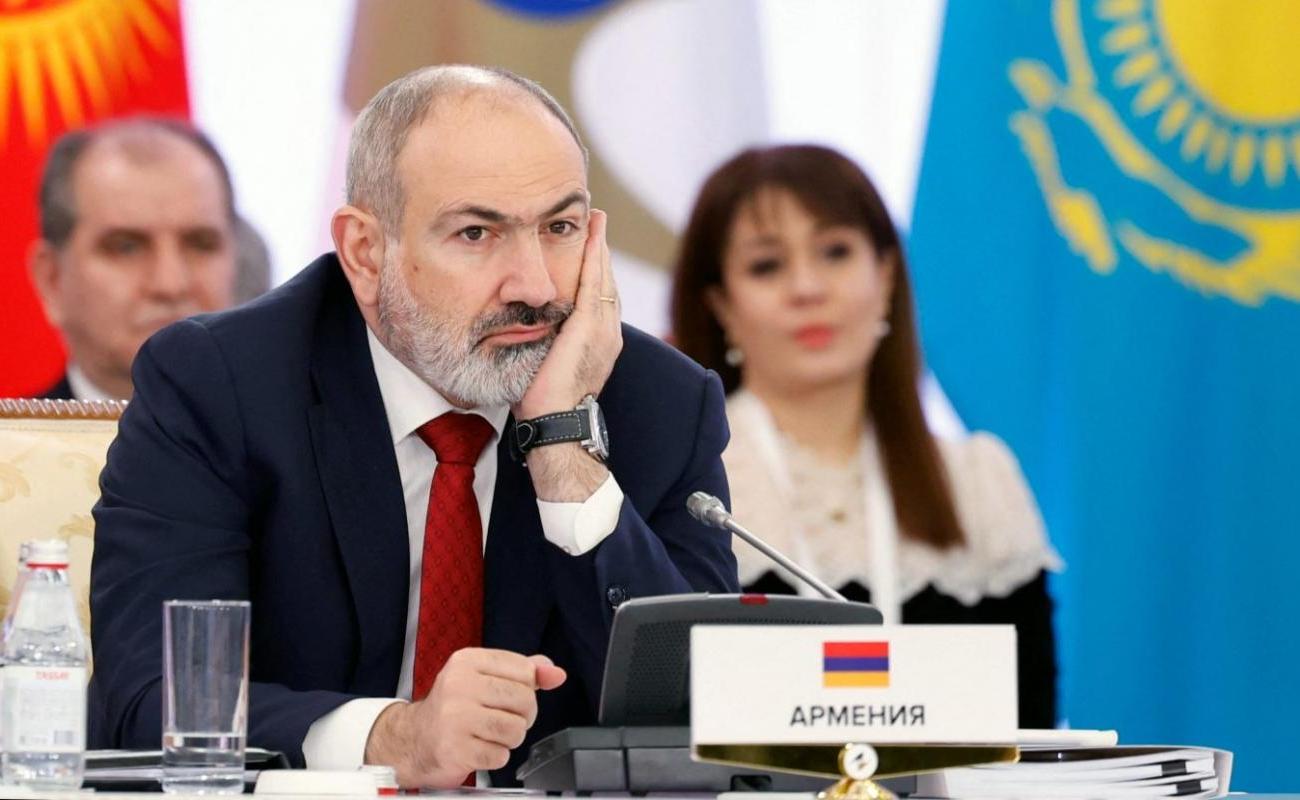Armenia Seeks to Distance Mother Russia

Armenia now appears to be changing the very fundamentals of its foreign policy. Foreign Minister Ararat Mirzoyan argued on March 9 that “these days, many new opportunities are being discussed in Armenia, and it will not be a secret if I say that membership in the European Union is included in them.”
The country’s growing interest in the EU coincides with the bloc’s renewed push for greater influence in the South Caucasus, where its many interests include expanding energy supply and shipments. The EU has increased its civilian mission to Armenia and launched a visa liberalization process.
Yet, it is the increasingly fraught ties with Russia that have pushed Armenia to seek closer cooperation with the EU. This promises future trouble.
It might be thought that Russia is less sensitive about EU expansion than about NATO membership but that is a serious misunderstanding. It was Ukraine’s decision to sign an association agreement with the EU in 2014 that triggered Russia’s annexation of Crimea and the beginnings of its war in Eastern Ukraine.
When any country, especially a former ally in what the Kremlin terms the “near abroad,” begins to push for closer ties with Brussels, it is seen as an abomination in Moscow.
Russian Foreign Minister Sergei Lavrov warned Russia would seriously reconsider its relationship with Armenia if Yerevan continues drifting away and aligning with the West.
This is echoed elsewhere in Moscow. Nikolai Patrushev, the secretary of the Russian Security Council, argued that the West’s intention is to destabilize the South Caucasus and undermine negotiations between Armenia and Azerbaijan, which retook the exclave of Nagorno-Karabakh by armed force in September.
Armenia, traditionally aligned with Russia, had wrongly imagined that the Kremlin would defend it against its well-armed, energy-rich neighbor. Russia has a military presence, and Armenia is a member of its Collective Security Treaty Organization (CSTO), as well as the Eurasian Economic Union, and has a bilateral aid treaty. Ultimately, it transpired, this narrowed Armenia’s foreign policy options, but not Russia’s. The Kremlin simply washed its hands of Prime Minister Nikol Pashinyan’s government in its hour of need.
It is fair to say that for many years, these ties to Russia did not trouble Armenia. After all, for decades since the 1990s, the alliance had proved beneficial. Azerbaijan was held in check and the closed border with Turkey was defended by Russian troops in the city of Gyumri.
All that changed when Azerbaijan won the war over Nagorno-Karabakh in 2020, which was followed by the fall of the separatist entity in September. Armenia asserted a Russian obligation that the Kremlin refused to accept.
That collapse of trust has since manifested itself in a plethora of ways. The Armenian foreign ministry has protested to Moscow over offensive expressions about the Armenian leadership on Russian channels and has taken a series of steps guaranteed to annoy Putin and his aides.
In early March, Russia was asked to withdraw its border guards from Zvartnots airport in the capital. The border guards had been stationed in the airport for decades, along with Russian troops at the borders with Turkey and Iran.
While the issue is largely symbolic, it was clearly designed to send a clear message that Armenia will also consider other aspects of bilateral cooperation if Russia does not change its approach. Its ties to the EU are meanwhile getting closer.
Pashinyan has now effectively frozen the country’s membership of CSTO, causing indignation in Moscow. Moreover, Armenia’s purchases of military equipment from Russia have plunged from 96% to less than 10% as it diversifies suppliers.
New partners include India, France, Greece, Iran and others. Indeed, Greece even suggested an Armenia-Greece-France-India quadrilateral cooperation in the military sphere during a visit by the Greek Defense Minister.
The seriousness of this shift is still unclear. For one thing, Armenia still faces a major dilemma: how would it defend itself in case of a major military flare-up with Azerbaijan? The potential for this is not that great, but it is by no means impossible given the unstable nature of the Baku-Yerevan relationship.
Just a month ago Azeri forces killed four Armenian soldiers in a retaliatory attack following the wounding of one of its men.
The Armenians may well feel they have little to lose. While Russia would be unlikely to defend it after withdrawal from CSTO, or while it pursues closer ties with the EU, experience since 2020 shows it’s highly unlikely to act anyway.
The Kremlin is now increasingly close to Azerbaijan and Turkey, and even though Iran is a big supporter of Armenia, Tehran would not intervene without a very serious threat to its interests. France is heavily engaged with Armenia, but it is hard to imagine it sending troops, or the route they might arrive by.
What do Armenians make of it all? Pashinyan’s government is deeply unpopular according to an International Republican Institute poll released on March 11. The prime minister’s 17% trust rating is appalling, and yet he is streets ahead of any other politician. The biggest group at 66% is don’t know-don’t trust. Even so, there is no love for Russia — two-thirds say relations are bad, a sixfold increase since 2018.
Economics are also relevant. Trade between Armenia and Russia in 2023 stood at $7.3bn — a staggering increase of 43% from 2022 (which many in the West believe is linked to enormous sanctions evasion.) Moscow could easily use this as a means of pressure.
Armenia faces numerous difficulties in executing a Western pivot, but we are certainly witnessing a testing of the ground. Russia’s bad-tempered response indicates the many problems ahead.
Emil Avdaliani is a professor of international relations at European University in Tbilisi, Georgia, and a scholar of Silk Roads.
